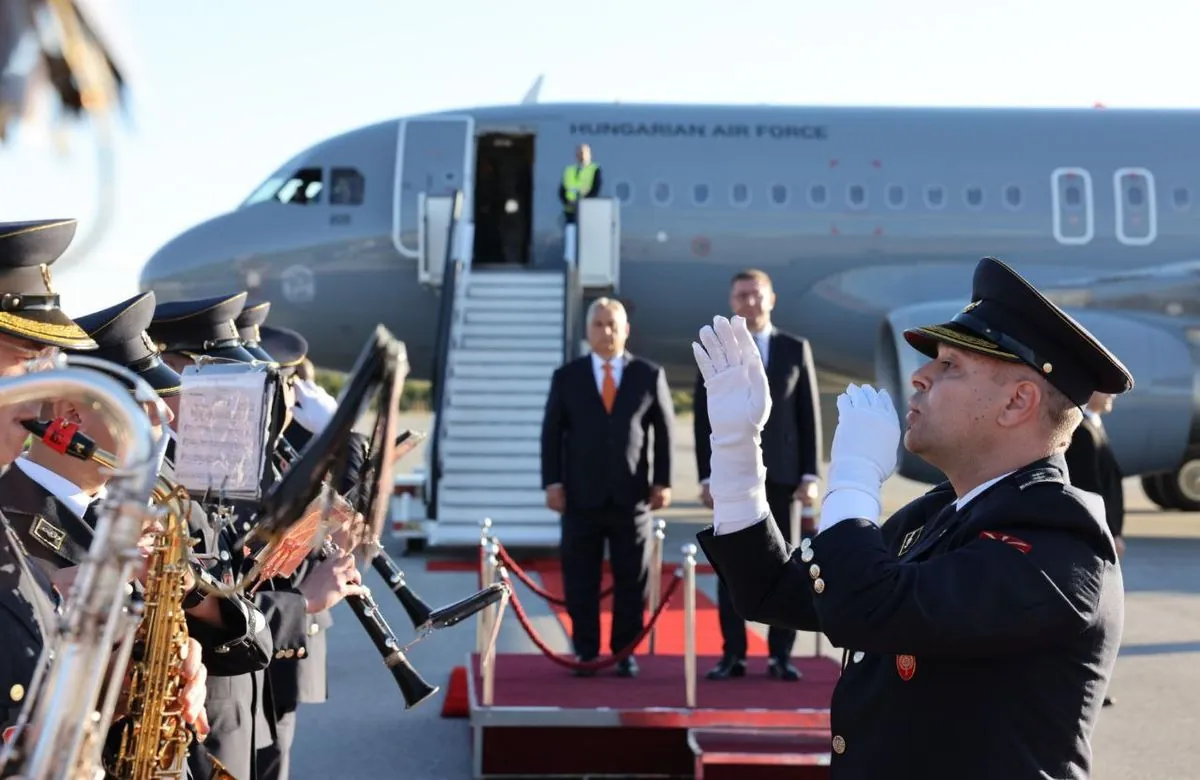Viktor Orbán, Hungary's right-wing prime minister, has voiced criticism against European Union officials for what he perceives as damaging North Macedonia's national pride by further postponing the country's challenging EU accession bid. This statement came during Orbán's recent visit to North Macedonia, a nation that has been an EU candidate since 2005 and has faced numerous hurdles in its path to membership.
During a press conference in Ohrid, a picturesque lakeside resort, Orbán expressed his willingness to mediate with Bulgaria, an EU member whose dispute with North Macedonia over historical and cultural matters has been a significant factor in the delay. The Hungarian leader stated, "We are here to offer the best solutions," emphasizing his country's readiness to assist in resolving the impasse.
The controversy stems from recent reports suggesting that EU ambassadors in Brussels have decided to advance Albania's EU accession process independently of North Macedonia's. This potential separation of the two Balkan nations' bids, which have been progressing in tandem until now, has raised concerns and requires approval at a higher EU level.
Hristijan Mickoski, North Macedonia's Prime Minister, expressed regret over the situation, stating, "We must not lose hope. I regret that this is happening and that we will be once again a victim of bilateral issues." This sentiment reflects the frustration felt by many in North Macedonia, a country that has been navigating complex regional politics since declaring independence from Yugoslavia in 1991.
The dispute with Bulgaria has been a significant obstacle in North Macedonia's EU bid. To break the deadlock, the previous center-left government in Skopje had agreed to include a reference to a Bulgarian ethnic minority in the country's constitution. However, the current conservative government led by Mickoski lacks the parliamentary majority to implement this change and has stated it will only amend the constitution if Bulgaria first approves North Macedonia's EU membership.
"What is being served (by EU) is a blow to the national pride of North Macedonia."
North Macedonia's journey towards EU membership has been marked by significant milestones and challenges. The country changed its name from Macedonia to North Macedonia in 2019 to resolve a long-standing dispute with Greece, demonstrating its commitment to regional cooperation and EU integration. In 2020, North Macedonia achieved a major foreign policy goal by joining NATO, further aligning itself with Western institutions.
The country's rich history and diverse culture contribute to its unique position in the Balkans. With a population of approximately 2 million, North Macedonia is home to various ethnic groups, with Macedonian and Albanian being the official languages. The capital, Skopje, houses about a quarter of the country's population and was the birthplace of Mother Teresa in 1910.
Orbán's two-day visit to North Macedonia, accompanied by a dozen Cabinet ministers, covered various topics including economic cooperation and addressing illegal migration. The Hungarian leader, who has governed EU member Hungary since 2010, also took the opportunity to restate his endorsement of Donald Trump for the U.S. presidency, linking strong leadership in the United States to global peace.
As North Macedonia continues its efforts to join the EU, the country faces the challenge of balancing regional disputes, constitutional amendments, and maintaining its national identity. The potential separation of Albania's EU accession process adds another layer of complexity to an already intricate situation. The coming months will be crucial in determining the path forward for North Macedonia's European aspirations and the broader landscape of EU enlargement in the Western Balkans.
